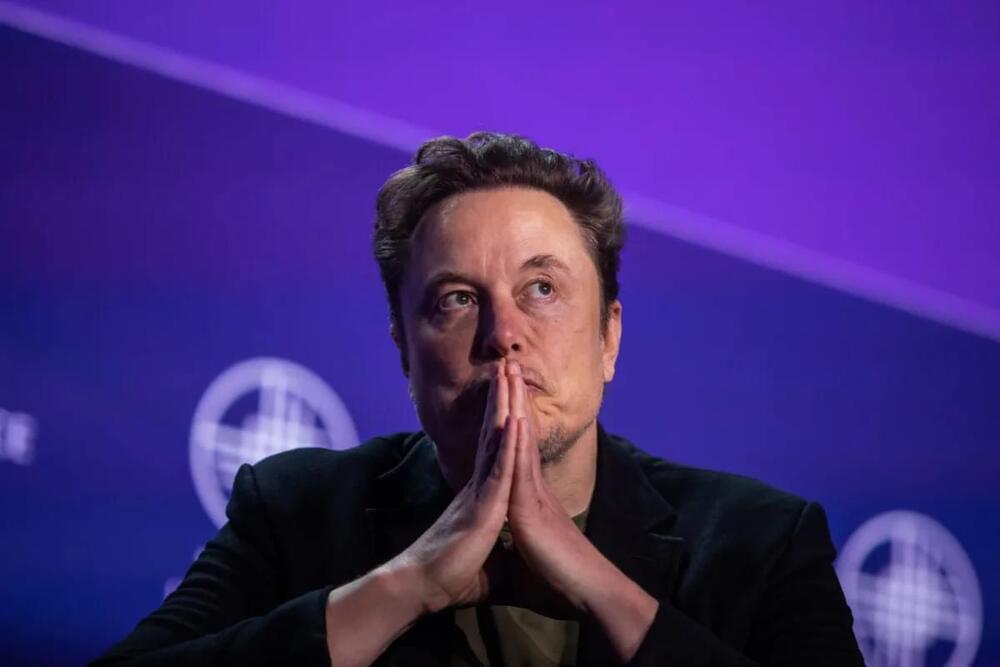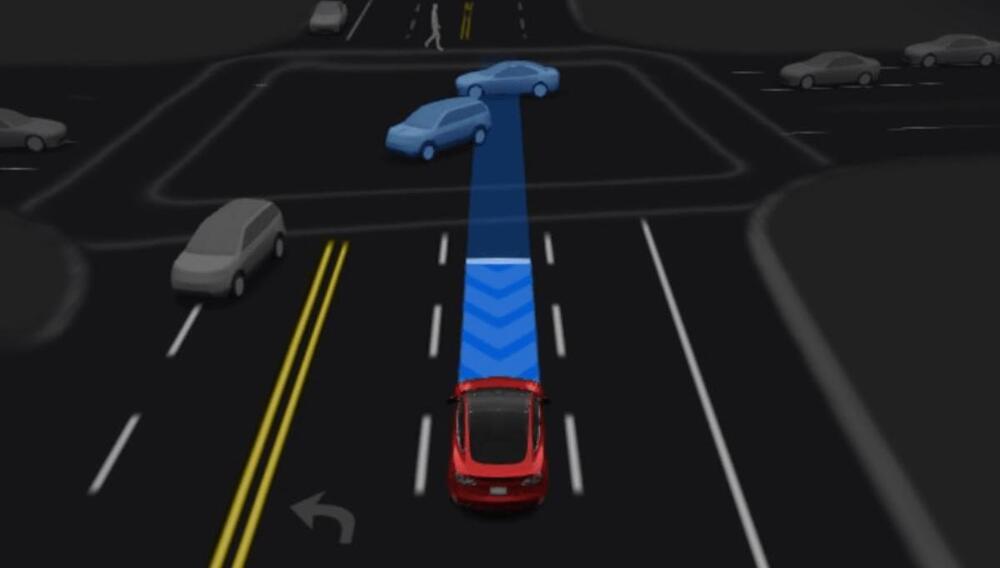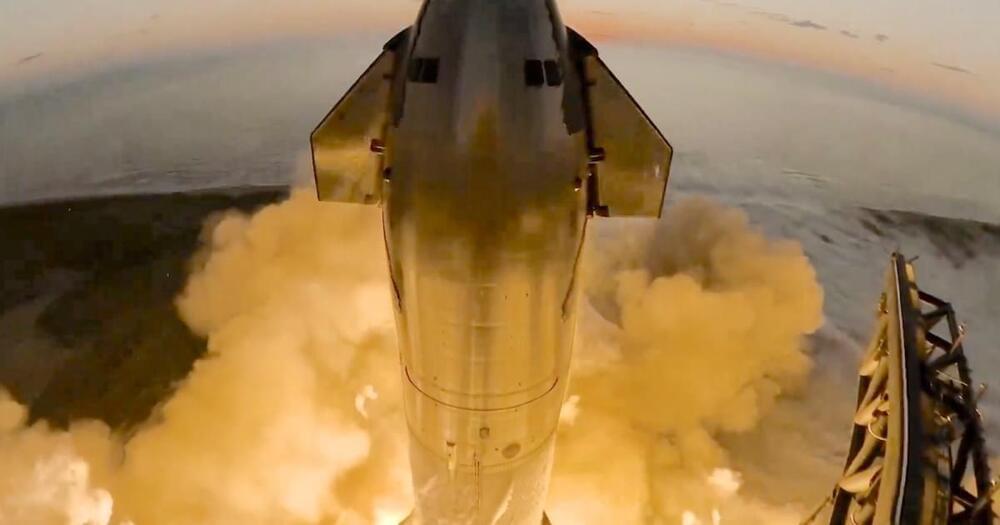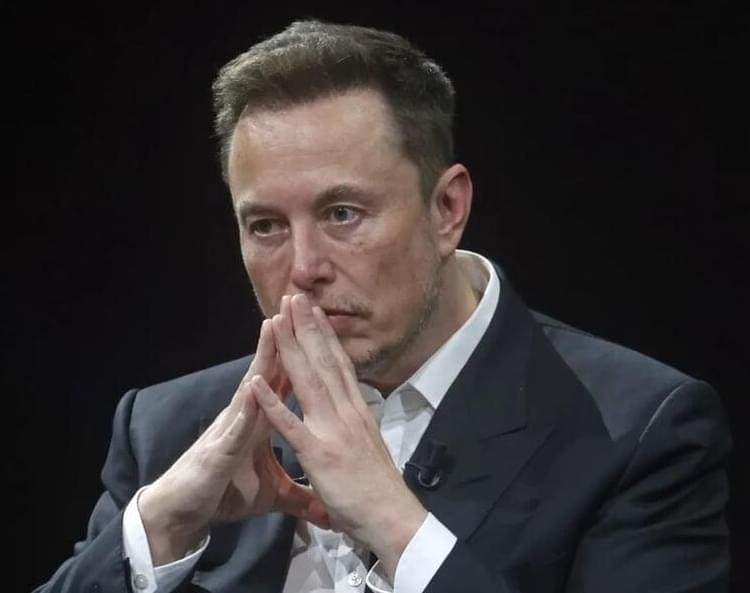SpaceX, Elon Musk’s company, is aiming for a radical future in which Starship rockets link major cities in a matter of minutes. Soon, you’ll be able to travel from London to New York in just 30 minutes. But how exactly will this game-changing technology work, and what obstacles remain?
Category: Elon Musk – Page 22


Tesla Rolls Out Major FSD Update with Neural Network Shift
Tesla began rolling out a significant update to its Full Self-Driving (FSD) software on Saturday, shifting the city-streets driving system to a single, end-to-end neural network model in FSD version 12.5.6.3.
Last week, Tesla CEO Elon Musk said the company’s FSD technology “is now almost entirely AI.” In early October, Musk had stated that FSD “will soon exceed 10,000 miles between critical interventions, which is a year of driving for most people.”
The Kardashev Scale: Type 1 To Type 7 Civilizations And Reverse Scale
Discovering Advanced Civilizations: Type 1 To 7 And Minus 0 To Minus 3: How Far Can We Go?
he kardashev scale type From Type 1 To 7 And Theand Reverse Scale: How Far Can We Go?
The Kardashev scale is a method used to determine a civilization’s technological advancement, which divides civilizations into three types, with type 1 being the simplest civilization of all.
The civilization created by the human race is not yet advanced enough to be considered a type 1 civilization. How long until we reach that classification? Stay to find out.
“Introduction“
Astrophysicist Nikolai Kardashev developed the Kardashev scale in 1964 to determine some characteristics that would facilitate the search for extraterrestrial life.
After analyzing several conditions in the history of the human race, Kardashev realized that there is a need that grows as civilization does, energy.
As the human race has expanded worldwide, so needs for energy.
Suppose this is inherent in all species that become an intelligent race. In that case, a hypothetical race of aliens who come to forge a civilization as significant or more extensive than that of humans will eventually also have an energy deficit.
To solve this energy need, an extraterrestrial race must develop technologies to meet the demand for energy needed to sustain all members of their civilization.
Kardashev theorized that in this sense, there must be 3 types of civilizations:
Type 1: A civilization that can harness all the energy its home planet gives them.
Type 2: A civilization that can harness the energy of its entire solar system.
Type 3: A civilization that can harness all the energy provided by the galaxy it is in.
“A type VII or K7 civilization would travel, transcend and ultimately oversee or ”be” the Omniverse which is the collection of every single universe, multiverse, megaverse, paraverse, 11d dimension, and 1st realm (reality). Everything is in the Omniverse, and there is only one Omniverse.” In other words, such a civilization would be as closest as godly as possible.
However, the achievement of a type 7 civilization will only be the end of a very long process of technological advancement and connection with the cosmos. To get there, we would first need to go to all the other civilization types that make up the scale. Let’s see what they consist of.
–
Another problem with the Kardashev Scale is the assumption that advanced civilizations have an insatiable appetite for energy and that they inevitably want to expand into space. When perhaps, turning a galaxy into a huge supercomputer is the last thing an advanced civilization would want to do…
At the end of the day, what do we know? Alien intelligence may have other desires… and goals that don’t involve this kind of intergalactic imperialism.
It must have been similar reasoning that brought cosmologist John Barrow
–
DISCUSSIONS & SOCIAL MEDIA
Commercial Purposes: [email protected].
Tik Tok: https://www.tiktok.com/@insanecuriosity.
Reddit: https://www.reddit.com/user/insanecuriosity.
Instagram: https://instagram.com/insanecuriositythereal.
Twitter: https://twitter.com/insanecurio.
Facebook: https://facebook.com/InsaneCuriosity.
Linkedin: https://www.linkedin.com/in/insane-curiosity-46b928277/
Our Website: https://insanecuriosity.com/
–
Credits: Ron Miller, Mark A. Garlick / MarkGarlick.com, Elon Musk/SpaceX/ Flickr.
–
00:00 Intro.
00:05 Type 1 Civilization on the Kardashev Scale.
12:48 Type 2 Civilization.
24:57 Type 3 Civilization.
35:40 Type 5 The Multiverse.
36:10 Type 7: We Might NEVER Reach it.
38:30 Type Minus. The reverse Kardashev scale.
-
#insanecuriosity #kardashevscale #advancedcivilization


Elon Musk: How Trump’s presidency could benefit the Tesla boss
He has frequently voiced concerns over the Biden administration’s approach to immigration and the economy, and claimed free speech would be at risk with another Democrat presidency.
As one of the president-elect’s most important backers, the tech billionaire donated more than $119m (£92m) to fund a Super PAC aimed at re-electing Trump.
He also spent the last weeks before election day running a get-out-the-vote effort in the battleground states, which included a daily giveaway of $1m to voters in those states.


Elon Musk’s xAI Eyes New Funding at $40 Billion Valuation as AI Race Intensifies
This was first reported by the Wall Street Journal. This comes after the company recently received a fundraise of $6 billion in a Series B round. The company said in a statement that the funding saw participation from several key investors, including Valor Equity Partners, Vy Capital, Andreessen Horowitz, Sequoia Capital, Fidelity Management & Research Company, Prince Alwaleed Bin Talal, Kingdom Holding, and others.
Elon Musk Says Neuralink Should Make Brain Chips That Will Eliminate Neck And Back Pain
Billionaire entrepreneur Elon Musk said on Tuesday (October 29) that Neuralink, the company he co-founded, should look to develop a brain implant which would alleviate neck and back pain. Neuralink develops makes Brain-Computer Interfaces (BCIs) which can be implanted in human brain. Musk’s latest comment came in a post he made on X (formerly Twitter), the social media platform he owns.
I am increasingly convinced that @Neuralink should prioritize making an implant that can eliminate back & neck pain.
Would greatly improve people’s happiness while awake, as well as enhance quality of sleep.
